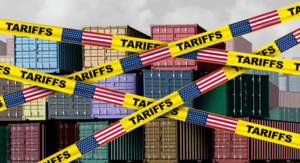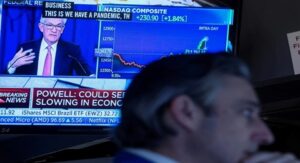
The Role of Islamic Finance for Sustainable and Resilient Infrastructure
The role of Islamic finance in fostering sustainable and resilient infrastructure is pivotal amidst today’s multifaceted development challenges. As highlighted, conventional financing falls short in addressing the vast infrastructure gap, particularly in developing countries. Islamic finance offers a transformative solution through participatory, asset-based, and risk-sharing models, aligning with long-term sustainability goals.
With Islamic financial markets valued at $3.25 trillion and a track record of successful partnerships, institutions like the Islamic Development Bank (IsDB) exemplify this approach. By embracing collaborative financing and leveraging multilateral development banks (MDBs), Islamic finance can mobilize investments, bridging infrastructure shortfalls and creating a more equitable future.
The Role of Islamic Finance for Sustainable
In an era marked by intricate development challenges, ranging from climate change to inequality and the digital divide, the need for sustainable and resilient infrastructure has never been more critical.
However, many developing countries find themselves grappling with shrinking fiscal space and heavy debt burdens, impeding their ability to bridge the infrastructure gap. With the global infrastructure-financing shortfall projected to reach a staggering $15 trillion by 2040, innovative solutions are imperative.
The role of Islamic finance presents a promising avenue for addressing these challenges, offering alternative mechanisms for infrastructure financing that align with Islamic principles while attracting investment from a diverse array of sources.
Enter Islamic finance, poised to play a pivotal role in mobilizing investments for infrastructure projects in developing nations. Here’s how:
Table of Contents
1. Global Development Challenges
The world grapples with a myriad of development hurdles, spanning climate change, swift urbanization, inequality, debt sustainability, and a digital chasm. These challenges intertwine, compounding one another and erecting intricate barriers against sustainable progress. Climate shifts strain resources and livelihoods, while burgeoning urban landscapes strain infrastructure and social fabric.
Economic disparities widen, burdening societies with unequal opportunities and fractured cohesion. Meanwhile, mounting debts jeopardize future stability, hindering investment in critical areas. The role of Islamic finance in addressing these financial challenges becomes crucial. Simultaneously, the digital gap widens, excluding many from the benefits of technological advancement.
Tackling these intertwined challenges demands holistic solutions and collaborative efforts to forge a path toward equitable and resilient development.
Read More: The Cost of De-Dollarization: Implications for Global Trade and Finance
2. Impact of COVID-19
The COVID-19 crisis illuminated the fragility of numerous developing nations, underscoring their inadequate social-sector infrastructure to manage emergencies. It laid bare deficiencies in healthcare, social support, and economic robustness, notably in the least-developed regions. This pandemic starkly revealed the insufficiency of sustainable and resilient infrastructure in these countries to handle multifaceted crises.
Moreover, it emphasized their struggle to bridge infrastructure deficits due to limited fiscal capacity, mounting debt, and insufficient aid. In addressing these challenges, the role of Islamic finance becomes increasingly pertinent, offering alternative mechanisms for financing infrastructure projects while adhering to ethical and Sharia-compliant principles.
Consequently, urgent attention and concerted efforts are imperative to fortify these nations against future challenges, ensuring their ability to respond effectively and safeguard their populations.
Read More: Europe’s Geoeconomic Challenges: Challenges and Opportunities
3. Infrastructure Financing Gap
By 2040, the global infrastructure-financing gap is predicted to soar to $15 trillion, largely affecting developing nations grappling with limited funds, hefty debts, and inadequate aid. Private sector hesitancy compounds the issue, fearing risks associated with investing in such projects.
This staggering shortfall underscores fundamental challenges: impoverished nations lack resources for extensive infrastructure ventures, while private entities shy away due to perceived risks.
The role of Islamic finance could offer a promising solution to this dilemma. Consequently, bridging this gap becomes daunting, impeding crucial infrastructure development efforts. Despite growing global needs, financial constraints and risk perceptions persist as formidable barriers to urgently required infrastructure advancements.
Read More: The Rise and Fall of Russia’s Gas Dominance
4. Role of Multilateral Development Banks (MDBs)
Multilateral development banks (MDBs) and stakeholders recognize the urgency in addressing challenges, including the role of Islamic finance. Pressured by shareholders, MDBs aim to enhance effectiveness. The G20-initiated review of MDBs’ capital frameworks advocates for innovative finance.
Additionally, the G20 Independent Expert Group advocates for increased private-sector involvement in development finance. This involves expanding risk-sharing instruments and introducing new ones like asset-based vehicles. These initiatives highlight a shift towards more proactive and diversified approaches in tackling global development issues.
Read More: The Economics of War
5. Asset-Based and Risk-Sharing Finance
Asset-based and risk-sharing finance, along with the role of Islamic finance, represent a paradigm shift from traditional debt-centric funding approaches. These models offer more than just capital injection; they cultivate partnerships and collaborative ecosystems. By making financiers stakeholders, both parties are incentivized for the project’s success, fostering a culture of shared responsibility. This shared commitment reduces the moral hazard inherent in debt-based financing, where lenders may prioritize short-term gains over project sustainability.
Asset-based and risk-sharing models promote long-term viability and sustainability, as stakeholders are invested in the project’s prosperity. Consequently, they catalyze a more dynamic and resilient financial landscape, where risk is mitigated through collective engagement and alignment of interests.
6. Islamic Finance
Islamic finance is rooted in principles that prioritize shared risk and long-term partnerships, emphasizing social and environmental sustainability, with the role of Islamic finance particularly evident in institutions like the Islamic Development Bank (IsDB). Here, the president underscores a commitment to funding projects aligned with these values.
Over five decades, the IsDB has allocated over $182 billion to initiatives spanning renewable energy, social welfare, and sustainable infrastructure. This steadfast dedication reflects a strategic shift towards fostering green economic growth and nurturing human capital, ensuring projects are not only financially viable but also contribute positively to society and the environment, thus embodying the essence of Islamic finance’s participatory and socially responsible ethos.
Read More: Iran-Israel Conflict: A Major Threat to Middle East Economic Corridor Initiatives
7. The Role of MDBs in Mobilizing Finance
Infrastructure financing, reliant on asset-based and risk-sharing financial tools, necessitates a robust financial sector backed by solid legal and regulatory frameworks, domestic capital markets, and transparent monitoring systems. The role of Islamic finance, with its emphasis on ethical and socially responsible investment practices, can further bolster this framework.
Multilateral Development Banks (MDBs) play a pivotal role here, fortifying financial infrastructure to attract private capital into developing nations. They foster investor confidence, cultivate a pipeline of feasible projects, exemplified by the recent launch of the Global Collaborative Co-Financing Platform.
Investing in sustainable infrastructure not only mitigates climate change but also yields lasting economic benefits, enhancing quality of life. The Islamic Development Bank (IsDB) pledges a leading role in this endeavor, urging other MDBs and private investors to follow suit. Collaborative action is imperative to bridge the global infrastructure-finance gap and forge a fairer future.
Read More: The Role of BRICS in De-dollarization
Bottom Line
In conclusion, investing in sustainable and resilient infrastructure is paramount for mitigating climate change, fostering economic growth, and improving livelihoods. Leveraging the principles of Islamic finance, alongside innovative financing mechanisms and MDB support, presents a viable path toward closing the global infrastructure-financing gap.
The role of Islamic finance in this endeavor offers a unique opportunity to align investment with ethical and sustainable principles, fostering inclusive development while adhering to Islamic values. The IsDB’s commitment to spearheading these efforts is commendable, but it requires collective action from MDBs, private investors, and stakeholders to realize a more equitable and prosperous future for all.
By working together, we can build the foundation for inclusive and sustainable development, ensuring no one is left behind in the pursuit of progress.





